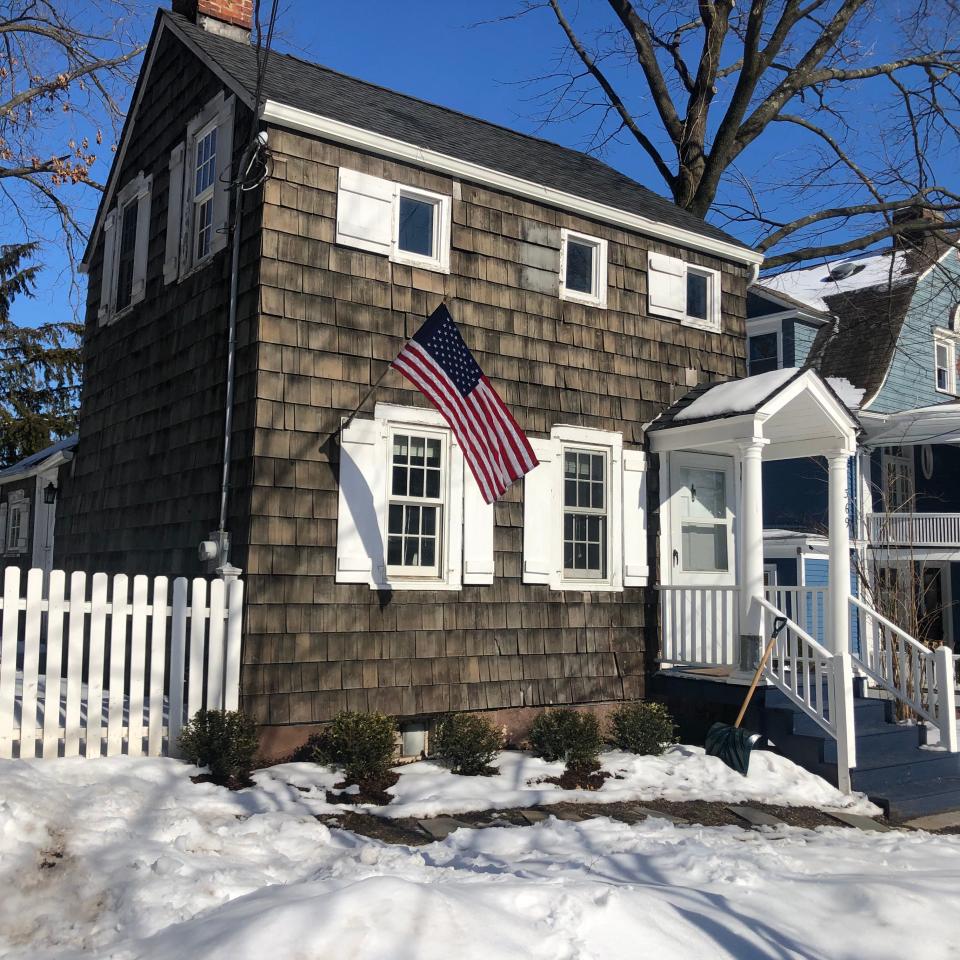Montclair preservationists rush to save historic 'Freed Slave House'
The tiny clapboard house at 364 Claremont that was home to an enslaved man named James Howe in the 1700s and is the oldest structure in Montclair is on the market for $379,000.
The real estate listing was an unwelcome surprise to a coalition of Montclair residents that have been in talks with the owner, Bob Van Dyk of Van Dyk Health Care, to purchase the property as a “monument to Montclair history.”
According to the Rev. Anya Sammler-Michael of the Montclair Unitarian Universalist Congregation, the preservation group, which includes local leaders from the NAACP and the African American Clergy Association, was formed two years ago from a committee that was seeking to do reparations work.
About six months ago, Van Dyk told the group he was thinking about selling the property, so “we expanded our focus to see how we could purchase the house using donor and grant money,” Sammler-Michael said. They asked Van Dyk for a “bit more time” to apply for nonprofit status, and he agreed, she said.
The listing, which went live on Wednesday, is particularly worrying because of its wording, which begins, “Attention Investors,” Sammler-Michael said. “That’s inappropriate for a house with local landmark status. What a developer would do is most likely tear down the property.
“The Howe House holds an important place in Montclair history and should become a Montclair monument, a place for people to understand their history and heritage,” she said.
Van Dyk was not immediately available for comment.

The preservation group, Friends of James Howe, is asking for donations here. “We’re getting pretty fired up,” Sammler-Michael said. “We’re trying to reach people that have thousands of dollars, or even just 10 dollars, to help us purchase the home.”
The house was originally on a large tract of farmland owned by Revolutionary War hero and abolitionist Major Nathaniel Crane, who purchased a young James Howe in 1831 for $50. When Crane died in 1836, his will freed Howe, who was blind, and gave him Crane's "five best acres;" a mill property in Caldwell called Crane's Mill; and a ferry business in the Meadowlands, said Frank Godlewski, a local historian who helped keep the house from being moved to the Montclair History Center in 2008.
Today, the "Freed Slave House" is dwarfed by the neoclassical mansion on the corner of North Mountain Avenue, built by the Welsh-Wiggin family of Welsh Farms in 1901 after a Howe descendent sold them the property. Blanton Welsh, an owner of the company, became interested in the history of the tiny house next door and paid for its renovation.
In the ‘50s it was sold by Howe's descendents to the Van Dyk family, who run a nursing home on an adjacent property.
Diane Tyree-Anglin of the Montclair NAACP chapter, a third-generation Black Montclairion who is working to save the house, said she didn’t know anything about it until recently.
“We are losing a lot of that rich culture,” she said. “This is a great opportunity to preserve a local landmark.
“Montclair had so many great Black people that did so much. It doesn’t have to be MLK or Malcolm X; you don’t need to go to the African American museum in Washington. We could preserve that history right here in Montclair and not sell it to someone who will just put up another townhouse.”
This article originally appeared on NorthJersey.com: Freed Slave House sale listing in Montclair worries preservationists

